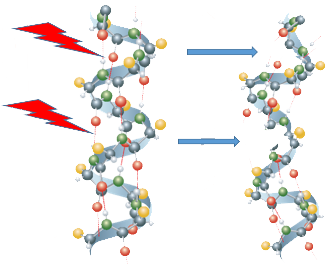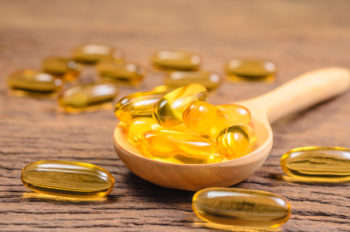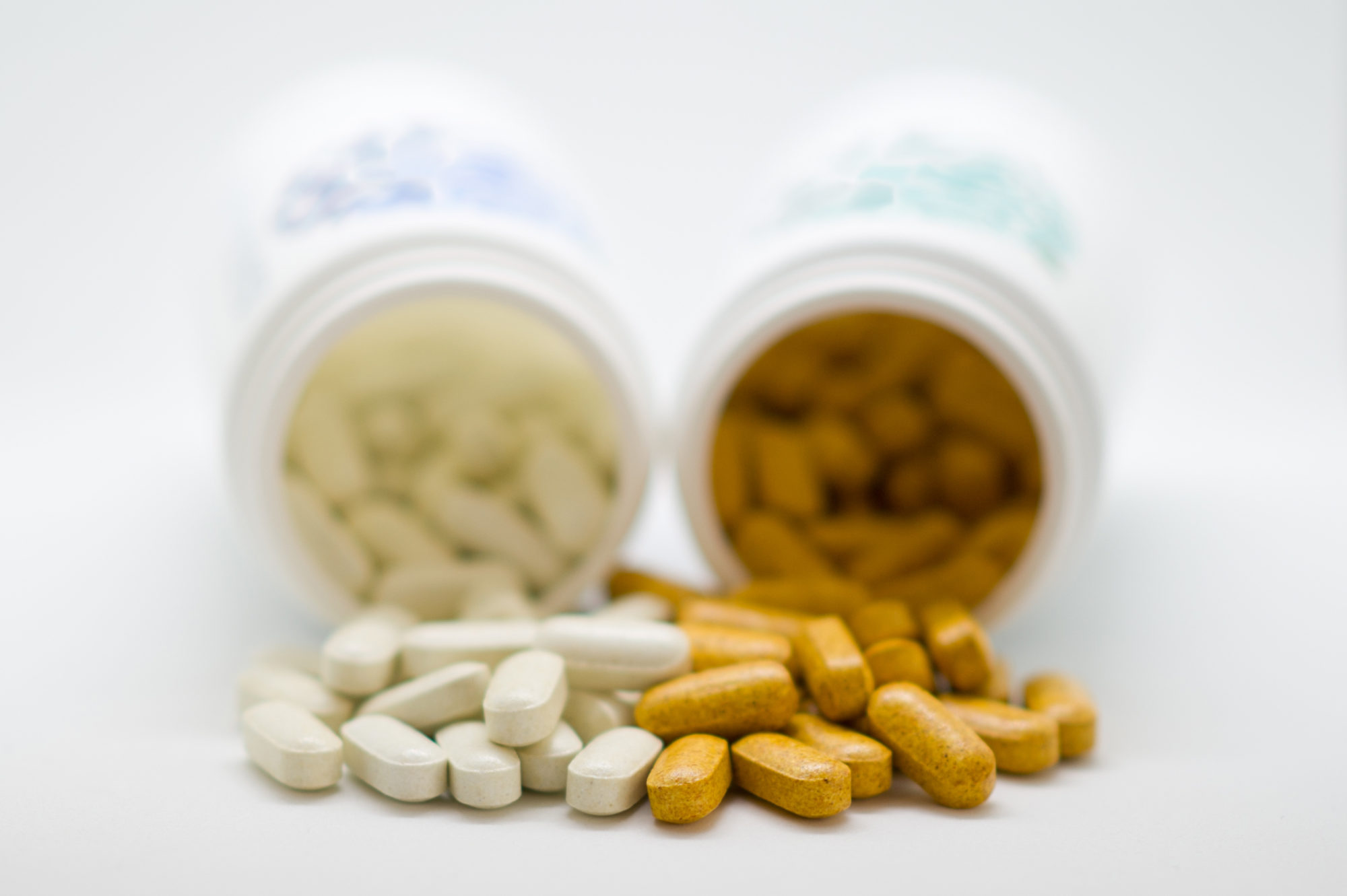not again !
Crohn’s Disease
Nutritional Supplements Help to Reduce the Severity and Progression of Crohn’s Disease
by Ladd McNamara, M.D.
Discussion

This article and protocol are for informational purposes only, and not intended as medical advice. Please read the medical disclaimer below, and consult with your personal physician prior to taking supplements or acting upon any information within this article or protocol, or found on the Dr. Ladd VIP website.
Crohn’s disease is an autoimmune, chronic inflammatory condition of the gastro-intestinal tract associated with abdominal pain and persistent diarrhea. Named after Dr. Burrill B. Crohn, who first described the disease in 1932, Crohn’s disease belongs to a group of disorders known collectively as inflammatory bowel disease.
Inflammatory bowel diseases classically include Crohn’s disease and ulcerative colitis; and though they have similar symptoms, they are completely different diseases. As opposed to ulcerative colitis, which is restricted to the large intestine (colon), Crohn’s disease can manifest anywhere along the gastro-intestinal (GI) tract from the mouth to the anus. However, it is most commonly found in the last part of the small intestine, the ileum, or in the first part of the colon, or large intestine.
Crohn’s disease may affect as many as 780,000 Americans. Men and women are equally at risk, and though the disease can occur at any age, Crohn’s disease most often first presents between the ages of 15 and 35. Caucasians of Eastern European descent, as well as Ashkenazi Jews are at greater risk than other ethnicities; however, in recent years, an increasing number of cases have been reported among blacks. (I avoid the politically-correct term, “African American,” when writing about medical issues, simply because not all blacks are Americans.)
Although the cause of Crohn’s disease is not truly known, hereditary, genetic, and environmental factors contribute to the development of Crohn’s Disease. As with all other autoimmune diseases, diet, stress, and lack of micronutrient intake aggravate Crohn’s disease. Recent research suggests that intestinal hyper-permeability associated with inflammation plays a key role in the pathogenesis of the disease. (1)
Oxidative Damage and Inflammation of the Intestinal Wall
With the gaps opening between epithelial cells, toxins (BPAs, PCBs, phthalates, aspartame, heavy metals, etc.) and food particles make their way beneath the mucosal lining and exacerbate inflammation. These foreign substances trigger localized inflammation, but they are also carried away via the bloodstream directly to the liver, resulting in liver inflammation. However inflammation does not stop there; the foreign substances and inflammation are disseminated throughout the body, resulting in numerous signs and symptoms.
Inflammation, which involves significant oxidative stress, or free radical damage, within the mucosal and submucosal layers of the intestines, leads to abdominal pain and cramping, nausea, vomiting, and bouts of severe diarrhea, as well as fatigue, weight loss and malnutrition. Inflammation spreads to the deeper layers of the intestinal wall. The result is scarring, thickening, and stenosis of the GI tract, which may require surgical resection of the affected area to prevent intestinal blockage, a life-threatening situation.

Leaky gut syndrome is known to be associated with the initiation of numerous autoimmune disorders. (Please see my article on Leaky Gut Syndrome.) It is not known whether Crohn’s disease leads to leaky gut syndrome, or vice versa, as the two disorders go hand-in-hand; or they are two expressions of the same disease. Either way, the goal of my protocols is to reduce or reverse leaky gut syndrome, as well as the symptoms and flare-ups associated with Crohn’s disease.
Leaky gut syndrome, or a hyper-permeable gut, occurs due to the breakdown of the tight junctions between epithelial cells making up the mucosal lining. Proteins that create the tight junctions have a genetic defect, and dysregulation of these dynamic proteins causes a gap between the cells by which bacteria, toxins, and undigested food particles can gain access below the epithelial barrier.(2 – 4)
The introduction of foreign substances triggers an inflammatory response, which then worsens the hyper-permeability of the intestinal lining; which continues to spiral into a worsening inflammatory situation that worsens the hyper-permeability and immune response.
Signs and Symptoms of Crohn’s Disease
- Frequent diarrhea; a common problem for people with Crohn’s disease.
- Sudden urge for a bowel movement.
- Feeling of incomplete evacuation of the bowel after bowel movement.
 Abdominal pain and cramping
Abdominal pain and cramping- Occasional constipation
- Nausea and vomiting
- Fever, likely due to infection in the intestinal wall.
- Night Sweats
- Fatigue, due to inflammation and/or infection.
- Blood in the stool. Ulcerations lead to bleeding. Depending on where the bleeding occurs, blood can present in the stool as bright red, dark, or occult (unseen blood in the stool).
- Mouth sores, or ulcers in the mouth similar to canker sores.
- Reduced appetite and weight loss. Abdominal pain and inflammation in the intestinal wall decreases one’s appetite.
- Malnutrition and micronutrient deficiencies due to inflammation and the intestinal epithelial cells’ reduced ability to absorb both macronutrients (carbohydrates, fats, and proteins) and micronutrients (vitamins, minerals, and antioxidants).
- Weight loss due to a lowered appetite and malabsorption of what is consumed.
- Loss of menstruation in women due to inflammation and low body weight.
- Perianal fistula. Inflammation breaks down tissue, and can lead to an abnormal tunnel, known as a fistula, that causes stool drainage from the intestine to the skin near the anus.
- Disseminated inflammation and pain: Inflammation can spread to the skin, eyes, liver, bile duct, and/or joints.
- Delayed growth and/or sexual development in children who develop Crohn’s disease.
The good news about all these symptoms is that most, if not all can be significantly reduced in major part by the use of proper nutritional supplementation. Other lifestyle changes must be employed, but none of them can have the effect without the supplementation outlined in my protocol below.
Risk Factors for Developing Crohn’s Disease
- Family History. As many as 1 in 5 people (20%) with Crohn’s disease have a first-degree relative (sibling, parent, or child) with Crohn’s disease.
- Ethnicity. Caucasians and people of Eastern European (Ashkenazi) Jewish descent have the highest risk.
- Age. Crohn’s disease can occur at any age, but most people develop the disease between 15 – 35 years of age.
 Cigarette smoking. Smoking, which generates tremendous amounts of free radicals and oxidative damage, not only can trigger Crohn’s disease, it leads to a more severe disease and a greater risk of having surgery than those who don’t smoke incur. This is the most controllable factor in reducing the incidence and severity of the disease. It also highlights the significance of oxidative damage in the pathogenesis of the disease and exactly why antioxidants are critical in reducing the incidence and severity of Crohn’s disease.
Cigarette smoking. Smoking, which generates tremendous amounts of free radicals and oxidative damage, not only can trigger Crohn’s disease, it leads to a more severe disease and a greater risk of having surgery than those who don’t smoke incur. This is the most controllable factor in reducing the incidence and severity of the disease. It also highlights the significance of oxidative damage in the pathogenesis of the disease and exactly why antioxidants are critical in reducing the incidence and severity of Crohn’s disease.- Nonsteroidal Anti-Inflammatory Drugs (NSAID); these include ibuprofen, naproxen sodium, diclofenac sodium, and others. While NSAIDs do not cause Crohn’s disease, they can worsen, or lead to ulcerations of the bowel lining, causing more inflammation and worsening Crohn’s disease.
- Living Location. The environment in which you live also appears to play a role. The prevalence of Crohn’s disease is more common in developed countries than in undeveloped countries, in urban rather than rural areas, and in northern rather than southern climates.
Studies have demonstrated that Crohn’s disease is associated with significant decreased blood concentrations of many vitamins and minerals. Among those deficiencies identified, are vitamin A, vitamin D, vitamin E, vitamin C, the carotenoids, and co-enzyme Q10, and omega-3 fatty acids. (5 – 7) The lower the concentrations of these micronutrients, the more severe the disease process.
Supplementing with micronutrients is recognized as an important adjunctive therapy. However in all the studies, none have used the doses, spectrum, nor potency of supplements outlined in my protocol. I believe that is why I have witnessed or heard back from those suffering from Crohn’s disease and other irritable bowel disorders, including leaky gut syndrome, of life-altering improvements in their conditions. They truly are able to live normal lives.
Crohn’s Disease May Result in Any of the Following Complications
- Bowel obstruction. Inflammation in the intestinal wall causes a buildup of scar tissue, resulting in a thickening of an area of the intestinal wall, which narrows the lumen of the intestine. The constricted area of the intestine can cause an obstruction of digested food or stool. A bowel obstruction is a life-threatening situation, requiring surgery to remove the segment of the affected intestine.
 Ulcers. Chronic inflammation can lead to open sores (ulcers) anywhere along the digestive tract, from the mouth to the anus.
Ulcers. Chronic inflammation can lead to open sores (ulcers) anywhere along the digestive tract, from the mouth to the anus.- Fistulas. Chronic inflammation breaks down tissue, leading to ulcers, which can extend through the intestinal wall to other organs, including a communicating tunnel (fistula) to other organs, including another loop of bowel, the stomach, bladder, vagina, or out to the skin. Intestinal content spills through the fistula to the other organ or out through the skin. The most common location of fistula formations are in the perianal area.
- Malnutrition. Diarrhea and abdominal pain and cramping lowers the appetite, leading to low food intake. Swollen intestinal lining, or leaky gut syndrome, causes a reduction in absorption of nutrients and vitamins. If a fistula forms, then food is diverted, further decreasing the absorption of nutrients. In addition, diarrhea moves the food bolus through the intestines more quickly, reducing the time needed for proper nutrient absorption.
- Anemia due to low iron absorption and/or blood loss; as well as decreased vitamin B-12 absorption. One should be tested as to whether there is an iron-deficiency anemia, or an anemia due a vitamin B-12 deficiency; as the two are treated differently. Of course, both conditions can co-exist.
- Anal Fissure and/or Abscess. A fissure is a small tear in the tissue that is in and around the anus. Infections can easily form due to the amount of bowel bacteria, which can easily form an abscess. If not surgically drained and treated, a perianal abscess can be life threatening. Inflammation by bacteria in an anal fissure can lead to perianal fistulas. Fistulas can form due to chronic inflammation from the bowel to the skin, or the skin to the bowel.
 Colon Cancer. Chronic inflammation of the lining of the large intestine increases the risk of colon cancer. In addition, inflammation lowers the immune system, which is the most important defense mechanism in finding and destroying cancer cells that arise daily in our bodies. Screening colonoscopies may need to be done earlier than a normal schedule of colon screening at age 50, and possibly more frequently than the recommended schedule of every 10 years in a healthy population. Discuss this matter with your doctor.
Colon Cancer. Chronic inflammation of the lining of the large intestine increases the risk of colon cancer. In addition, inflammation lowers the immune system, which is the most important defense mechanism in finding and destroying cancer cells that arise daily in our bodies. Screening colonoscopies may need to be done earlier than a normal schedule of colon screening at age 50, and possibly more frequently than the recommended schedule of every 10 years in a healthy population. Discuss this matter with your doctor.- Osteoporosis in Men and Women. Lack of minerals and lowered production of vitamin D can lead to osteoporosis, particularly in those who are susceptible. Steroid medications often employed in the treatment of inflammatory conditions increase the risk of osteoporosis (as well as infections).
- Gallbladder Disease. Cholecystitis is inflammation of the gall bladder, which is a serious situation.
- Liver Disease. Inflammation of the liver is hepatitis; possibly from the dissemination of bowel bacteria from the intestine that flow in the bloodstream directly to the liver. The need for the liver support supplement in the protocol not only helps support a healthy immune system and reduce inflammation, this supplement also assists the liver in carrying out its many functions.
- Medication Risks. Corticosteroids and other immuno-suppressive drugs used to treat Crohn’s disease suppresses the immune system and increase the risk of developing colon cancer, skin cancer, and lymphoma. There is also an increased risk of severe infections, including abscesses. Steroids can also thin the skin, and may increase the risk of perianal fistulas. Corticosteroids increase the risk of osteoporosis, bone fractures, cataracts, glaucoma, diabetes and high blood pressure, among other problems. The complications and side-effects of medications is a major reason that nutritional supplements are critical for those with Crohn’s disease.
Understanding Autoimmune Development and Why Steroids are Not the Answer
Autoimmune diseases have a genetic component and require one or more triggers from the environment, food, bacteria, toxins, stress, etc. Genetic defects in at least one protein type of the tight junction between intestinal epithelial cells have been identified, which appears to be one cause of hyper-permeability. (2) This may be an initiating factor, that is, a genetic susceptibility of specific and unique proteins to be damaged by free radicals, i.e., oxidative damage.
The immune system recognizes “self” from foreign invaders (bacteria, viruses, or other people’s organs) by the unique 3-dimensional configuration of proteins along the surface of cell membranes. If the immune system does not recognize the 3-dimensional shape as “self,”  then an immune response is mounted against those proteins, whether they are proteins from bacteria, viruses, transplanted organs, or one’s own cells with damaged, or altered proteins.
then an immune response is mounted against those proteins, whether they are proteins from bacteria, viruses, transplanted organs, or one’s own cells with damaged, or altered proteins.
Molecules, such as proteins, are held in their own unique 3-dimensional configuration by electronic charges of the atoms making up the molecule. The stripping away of electrons by free radicals, which is oxidation, changes the bond from atom to atom, which changes the 3-dimensional configuration of the molecule — in this case, the protein.
With free radical oxidation, there is no loss of atoms in the protein. All the atoms are accounted for when tested by electrophoresis. However, what cannot be accounted for via electrophoresis is the change in electronic bonds between the atoms that have been altered by oxidation, resulting in a 3-dimensional molecular reconfiguration. A change in the configuration of the protein can alter its function AND make the damaged protein appear ”foreign” to the immune system. To the immune system, your damaged proteins appear “non-self.” In fact, they are treated as if they were a foreign, invading bacteria. They are attacked and destroyed.
Crohn’s disease is an autoimmune disease with involvement of hyper-permeability, triggered and made worse by free radicals that cause oxidative stress and inflammation. (8)
As the intestinal cells continue to make new proteins, replacing the damaged proteins, these too are oxidized by free radicals, and therefore altered and made to appear foreign to the immune system; and the immune attack continues. Immuno-suppressant drugs are employed to slow the immune response, but that is not treating the root of the problem.
If we assume that the immune system is normal and simply doing what it is designed to do, that is, seek and destroy foreign proteins, then why try to suppress a normally functioning immune system with corticosteroids or other immuno-suppressants?
What if it were possible to protect the genetically susceptible proteins from being altered so they do not appear “foreign” to the immune system? The immune system would recognize a correctly configured “self” protein and would NOT mount an immune attack. This is the very key to managing ALL autoimmune disorders: (a) protect the proteins in whatever tissue is being attacked from being damaged, by reducing or eliminating the causative factors that increase free radicals, and (b) use antioxidants to protect cellular proteins from the baseline free radicals generated by normal cellular metabolism. (9)
The cells will create new proteins on the cell membranes to replace the damaged proteins, and as long as they are not oxidized, they will function normally, will not have their 3-dimensional shape altered, and will not trigger an autoimmune response. There will be no inflammation, no pain, no cramping, no diarrhea, no scarring, no obstruction; and the intestinal cells will absorb nutrients properly. The person will not be cured, but if he is living a high-quality life, what is the difference? This is exactly what I have been witnessing for over 20 years with the use of broad-spectrum, potent nutritional supplement protocols, particularly high doses of grape seed extract, which is both safe and effective. My adage has been, “keep increasing the dose of grape seed extract until you get the effect you want.”
Grape Seed Extract and Other Polyphenolic Antioxidants
 Grape seed extract is an essential component of the protocol for Crohn’s disease, as well as for all other autoimmune diseases, because it protects proteins of the body from being damaged by free radical oxidation. Grape seed extract and other polyphenolic antioxidants are also powerful inhibitors of the Cox-2 enzyme, involved in the inflammatory process.
Grape seed extract is an essential component of the protocol for Crohn’s disease, as well as for all other autoimmune diseases, because it protects proteins of the body from being damaged by free radical oxidation. Grape seed extract and other polyphenolic antioxidants are also powerful inhibitors of the Cox-2 enzyme, involved in the inflammatory process.
Grape seed extract, resveratrol, curcumin (turmeric extract), green tea extract, olive extract, resveratrol, N-acetyl-L-cysteine (boosting glutathione) and many other antioxidants all help prevent excessive oxidation and inflammation, resulting in less autoimmune flare-ups in all autoimmune disorders, including Crohn’s disease. (10 – 17)
Probiotics are Critical for Healing the Gut
 The microbiome of the gut can be considered another organ of the body. Weighing nearly three pounds, and comprised of a diverse species of bacteria numbering in the 50 – 100 trillion range, the microbiome is considered the “rain forest” of the body. It is an intricate balance of friendly bacteria with which we have a symbiotic relationship in order to maintain a healthy digestive tract and proper digestion.
The microbiome of the gut can be considered another organ of the body. Weighing nearly three pounds, and comprised of a diverse species of bacteria numbering in the 50 – 100 trillion range, the microbiome is considered the “rain forest” of the body. It is an intricate balance of friendly bacteria with which we have a symbiotic relationship in order to maintain a healthy digestive tract and proper digestion.
The microbiome plays a much larger role than just assisting digestion. It is a key component in maintaining a healthy immune system, producing serotonin for mood enhancement and even helping to maintain healthy skin.
Antibiotics, eating unhealthy foods, stress, lack of sleep, coffee, alcohol, lack of hormones, and many other factors can alter the balance of bacteria in the bowel.
In Crohn’s disease, the bacteria are not only unbalanced, but they make their way beneath the hyper-permeable epithelial layer and trigger inflammation. Improving the intestinal microbiome with supplementation with probiotics is a critical component for the treatment and management of Crohn’s disease. (18)
In my protocol I recommend probiotic strains that scientific studies have backed as the two most important strains to replace in order to establish a foundation for growth of numerous other bacterial strains: Lactobacillus rhamnosus LGG, and Bifidobacterium BB-12.
Numerous probiotic strains are available, many of which have very little-to-no clinical data regarding their benefit or physiological activity. The two strains above are indicated by numerous human trials to prove viability and benefit in humans. They are designed for long shelf life and importantly, to withstand the harsh acidic environment of the stomach, so they can pass into the intestines intact. There they multiply and create a healthy environment for the microbiome to flourish.
Probiotics help heal the hyper-permeable intestinal lining, which reduces inflammation and immune activation. (19)
Other Micronutrient Supplements
The amino acids L-glutamine and L-arginine help heal the intestinal hyper-permeability seen in Crohn’s disease, ulcerative colitis, and leaky gut syndrome. (20 – 22) You will see that I have incorporated these amino acids in my protocol below.
Reducing stress and getting quality sleep are also important components for reducing oxidative stress and healing the body. DHEA helps counter the effects of high cortisol levels and is dubbed “the youth hormone,” as it acts on all cells in the body to help keep them functioning as if they were young. This includes the brain, the heart, the muscles, the liver, and the bowel.
One small study involving 33 men with either Crohn’s disease or ulcerative colitis, found that DHEA levels were lower than in healthy individuals. The men given 200 mg of DHEA per day showed significant improvements in the Crohn’s disease, including remission. (23)
DHEA is also a precursor hormone in the production of testosterone. A case-control study involving women from the Nurses’ Health Study found that those women with the lowest concentration of androgenic hormones, such as testosterone, had a greater incidence of Crohn’s disease. (24)
However, like all the other supplements, no single ingredient should be relied upon for a life-changing effect. Another important hormone that declines with aging, and more so in chronic diseases such as Crohn’s disease, is melatonin.
Melatonin not only helps induce quality, restorative sleep, it is also a powerful antioxidant and contributes to overall health and reduction of inflammation. I have always recommended nightly melatonin supplementation to healthy individuals to maintain brain health, reduce stress, and trigger the cascade of hormones involved in the circadian rhythms, such as the release of hypothalamic hormones, serotonin, dopamine, growth hormone, and thyroid stimulating hormone, ACTH to stimulate the production of DHEA. But especially when a patient’s melatonin drops off precipitously, supplementing with melatonin in combination with the other supplements can be helpful in the management of Crohn’s disease. (25)
 Omega-3 fatty acids, as from fish oil, have been shown to help alleviate symptoms of Crohn’s disease and other inflammatory bowel disorders. (26) Omega-3 fatty acids reduce inflammatory cytokines, tumor necrosis factor, and other inflammatory factors. They also are used in the repair of the cellular membranes. As a bonus, they also help with mood and brain functioning.
Omega-3 fatty acids, as from fish oil, have been shown to help alleviate symptoms of Crohn’s disease and other inflammatory bowel disorders. (26) Omega-3 fatty acids reduce inflammatory cytokines, tumor necrosis factor, and other inflammatory factors. They also are used in the repair of the cellular membranes. As a bonus, they also help with mood and brain functioning.
Choosing a quality fish oil supplement is important, especially since ConsumerLab.com found that out of the fish oil brands they evaluated, 30 percent of them had some problems, e.g., rancidity, lower concentration of EPA and DHA (the omega-3 fatty acids) than stated on the label, and contamination with PCBs. PCBs are toxins that are known to cause cancer, as well as to disrupt hormones and neurotransmitters.
Regarding beta glucans, I would not suggest those with Crohn’s disease take beta glucan supplements at this time. A few studies have suggested that beta glucans may cause a flare up in Crohn’s disease by increasing the inflammatory response in the intestinal lining. (27) I am not confident that is the whole story; but, until we have more information, it is prudent for those with Crohn’s disease to hold off on consuming beta glucan supplements.
Conclusion
 Crohn’s disease is a chronic inflammatory autoimmune disease that can be managed with proper nutritional supplementation. Oxidation by bacteria, toxins, food additives, sweeteners (aspartame), stress, etc., increase the damage to the genetically susceptible proteins in the intestinal lining and cause hyper-permeability, triggering an inflammatory response. Antioxidants, vitamins, minerals, omega-3 fatty acids, probiotics, melatonin, DHEA can all help reduce the progression and even induce remission in Crohn’s disease.
Crohn’s disease is a chronic inflammatory autoimmune disease that can be managed with proper nutritional supplementation. Oxidation by bacteria, toxins, food additives, sweeteners (aspartame), stress, etc., increase the damage to the genetically susceptible proteins in the intestinal lining and cause hyper-permeability, triggering an inflammatory response. Antioxidants, vitamins, minerals, omega-3 fatty acids, probiotics, melatonin, DHEA can all help reduce the progression and even induce remission in Crohn’s disease.
The supplement protocol combined with avoidance of toxic foods and substances, reduction in stress, and adequate sleep, can help prevent, alleviate, and possibly even reverse most of the consequences of Crohn’s disease.
Supplement Protocol for Crohn’s Disease
 The more serious and complicated your case of Crohn’s disease, the greater the indication for the optimal protocol to be employed for optimal results. People want life-changing results. This is available to those who incorporate the protocol, including the principles discussed in the article. A very real possibility exists that immune-suppressant drugs may not be necessary. Of course, you will have to work with your doctor on this.
The more serious and complicated your case of Crohn’s disease, the greater the indication for the optimal protocol to be employed for optimal results. People want life-changing results. This is available to those who incorporate the protocol, including the principles discussed in the article. A very real possibility exists that immune-suppressant drugs may not be necessary. Of course, you will have to work with your doctor on this.
This article and protocol are for informational purposes only, and not intended as medical advice. Please read the medical disclaimer below, and consult with your personal physician prior to taking supplements or acting upon any information within this article or protocol, or found on the Dr. Ladd VIP website.
Minimal Protocol for Crohn’s Disease

Basic Protocol for Crohn’s Disease

Average Protocol for Crohn’s Disease

Advanced Protocol for Crohn’s Disease

- AM: With, or after breakfast
- Noon: At lunchtime with food, or shortly thereafter
- PM: Late afternoon with food, or at, or after dinner
- Please see my list of ingredients (below) that I like to see provided by a foundational vitamin and mineral supplement, as well as what is in the liver health supplement I use.
- Probiotics, at least take 12 billion colony-forming bacteria, providing Lactobacillus rhamnosus LGG® and Bifidobacterium BB12 every other day or daily.
- Liver support supplement that provides numerous ingredients, including N-Acetyl-L-Cysteine (NAC), turmeric extract (curcumin), green tea extract, olive extract, broccoli extract, alpha lipoic acid, milk thistle extract, and biotin. Although this product may be marketed as a liver support supplement, it also supports heart health, eye health, brain and nerve health (protecting against neuronal damage) as well as supports the immune system.
- Beta Glucans are derived from Reishi and Shiitake Mushrooms, as well as Baker’s Yeast Extract. They boost the immune system, to help fight viruses, bacteria, fungi, and cancer cells. They also help reduce heart disease, diabetes, and support nerve and neuronal function.
- The amino acids L-Glutamine and L-Arginine, as well as the hormone DHEA (micronized) can be obtained from Douglas Labs, by first creating a customer account by CLICKING HERE. (If this link does not work for you, simply type “douglaslabs.com/patient-account” into a new browser tab.) Please use Referral Code 2074214. After establishing an account with them, simply search out the products by name.
Ingredients that I like to see provided collectively by vitamin-antioxidant & chelated mineral tablets
Vitamin A, mostly as Beta Carotene
Vitamin C
Vitamin D3
Vitamin E
Vitamin K (K1 & K2)
B-Complex Vitamins
Curcumin (turmeric extract)
Quercetin
Green Tea Extract
Olive Extract
Rutin
Resveratrol
Choline
Lutein
Lycopene
N-Acetyl-L-Cysteine (NAC)
Calcium
Magnesium
Iodine (as potassium iodide)
Zinc
Selenium
Copper
Manganese
Chromium
Molybdenum
Including Ultra Trace Minerals
Medical Disclaimer
Information on this website, written, spoken, or in any other communication by Dr. Ladd McNamara or any other information or reference is for informational purposes only. The information provided on this website is a result of years of practice, experience, and study by the author. This information is not intended as a substitute for the advice provided by someone’s personal licensed physician or other healthcare professional, or any information contained on or in any product label or packaging. Do not use the information on this website, or any other form of communication from Dr. Ladd McNamara or the Dr. Ladd VIP Program, for diagnosing or treatment of a health issue or disease, or for the prescribing of medication or the use of supplementation without a discussion with your licensed health professional first. At best, the information provided on this website is only meant to supplement information provided by your own doctor or health professional, not to replace medical advice. The information from this website is not meant to cover all possible uses, precautions, interactions or possible adverse effects of nutritional supplements with or without medications, or in conjunction with specific medical conditions. The information from this website may not fit your specific health circumstances. Never delay seeking medical care or disregard advise from your health care professional because of information you have received directly or indirectly from this website, from the Dr. Ladd VIP Program, or from Dr. Ladd McNamara himself. Always speak with your physician or other healthcare professional before making any changes to your medication or embarking on a nutritional, herbal or homeopathic supplement program, or before using any treatment for a health concern. If you have, or suspect that you have, a medical problem, contact your health care provider promptly. Do not disregard professional medical advice or delay in seeking professional advice because of something you have read or heard on this website, or due to any other information from Dr. Ladd McNamara or his representatives. Information provided on this website or the V.I.P. Program, and the use of any products or services mentioned on this website (or as a result of information provided this program, article, or website) by you DOES NOT create a doctor-patient relationship between you and Ladd McNamara, M.D. Information and statements regarding dietary supplements have not been evaluated by the Food and Drug Administration and are not intended to diagnose, treat, cure, or prevent any disease.
References
- Han X. Intestinal permeability as a clinical surrogate endpoint in the development of future Crohn’s disease therapies. Recent Pat Inflamm Allergy Drug Discov. 2010 Jun;4(2):159-76.
- Fitzgerald K, et al. Psoriatic arthritis. Glob Adv Health Med. 2012 Sep;1(4):54-61.
- McGough G. Leaky Gut. Nurs Stand. 2011 Aug 24;25(51):30.
- Odenwald MA, Turner JR. Intestinal permeability defects: is it time to treat? Clin Gastroenterol Hepatol. 2013 Sep;11(9):1075-83.
- Sadeghian M, et al. Vitamin D status in relation to Crohn’s disease: Meta-analysis of observational studies. Nutrition. 2016 May;32(5):505-14.
- Genser D, et al. Status of lipidsoluble antioxidants and TRAP in patients with Crohn’s disease and healthy controls. Eur J Clin Nutr. 1999 Sep;53(9):675-9.
- Barbalho SM, et al. Reflections About Inflammatory Bowel Disease and Vitamins A and D. J Med Food. 2016 Dec;19(12):1105-1110.
- Buffinton GD, Doe WF. Depleted mucosal antioxidant defenses in inflammatory bowel disease. Free Radic Biol Med. 1995 Dec;19(6):911-8.
- Alzoghaibi MA. Concepts of oxidative stress and antioxidant defense in Crohn’s disease. World J Gastroenterol. 2013 Oct 21;19(39):6540-7.
- Vargas Robles H, et al. Analyzing Beneficial Effects of Nutritional Supplements on Intestinal Epithelial Barrier Functions During Experimental Colitis. J Vis Exp. 2017 Jan 5;(119).
- Kaulmann A, Bohn T. Bioactivity of Polyphenols: Preventive and Adjuvant Strategies toward Reducing Inflammatory Bowel Diseases-Promises, Perspectives, and Pitfalls. Oxid Med Cell Longev. 2016;2016:9346470.
- Martin DA, Bolling BW. A review of the efficacy of dietary polyphenols in experimental models of inflammatory bowel diseases. Food Funct. 2015 Jun;6(6):1773-86.
- Somani SJ, et al. Phytochemicals and their potential usefulness in inflammatory bowel disease. Phytother Res. 2015 Mar;29(3):339-50.
- Oz HS, Chen T, de Villiers WJ. Green Tea Polyphenols and Sulfasalazine have Parallel Anti-Inflammatory Properties in Colitis Models. Front Immunol. 2013 Jun 5;4:132.
- Koláček M, et al. Effect of natural polyphenols (Pycnogenol) on oxidative stress markers in children suffering from Crohn’s disease–a pilot study. Free Radic Res. 2013 Aug;47(8):624-34.
- Rosillo MA, et al. Protective effect of ellagic acid, a natural polyphenolic compound, in a murine model of Crohn’s disease. Biochem Pharmacol. 2011 Oct 1;82(7):737-45.
- Wang N, et al. Resveratrol Protects Oxidative Stress-Induced Intestinal Epithelial Barrier Dysfunction by Upregulating Heme Oxygenase-1 Expression. Dig Dis Sci. 2016 Sep;61(9):2522-34.
- Wright EK, et al. Recent advances in characterizing the gastrointestinal microbiome in Crohn’s disease: a systematic review. Inflamm Bowel Dis. 2015 Jun;21(6):1219-28.
- Barbara G, et al. Mucosal permeability and immune activation as potential therapeutic targets of probiotics in irritable bowel syndrome. J Clin Gastroenterol. 2012 Oct;46 Suppl:S52-5.
- Coburn LA, et al. L-arginine supplementation improves responses to injury and inflammation in dextran sulfate sodium colitis. PLoS One. 2012;7(3):e33546.
- Rapin JR, Wiernsperger N. Possible links between intestinal permeability and food processing: A potential therapeutic niche for glutamine. Clinics (Sao Paulo). 2010 Jun;65(6):635-43.
- Vermeulen MA, et al. Glutamate reduces experimental intestinal hyperpermeability and facilitates glutamine support of gut integrity. World J Gastroenterol. 2011 Mar 28;17(12):1569-73.
- Andus T, et al. Patients with refractory Crohn’s disease or ulcerative colitis respond to dehydroepiandrosterone: a pilot study. Aliment Pharmacol Ther. 2003 Feb;17(3):409-14.
- Khalili H, et al. Endogenous levels of circulating androgens and risk of Crohn’s disease and ulcerative colitis among women: a nested case-control study from the nurses’ health study cohorts. Inflamm Bowel Dis. 2015 Jun;21(6):1378-85.
- Esteban-Zubero E, et al. Melatonin’s role as a co-adjuvant treatment in colonic diseases: A review. Life Sci. 2017 Feb 1;170:72-81.
- Barbalho SM, et al. Inflammatory bowel disease: can omega-3 fatty acids really help? Ann Gastroenterol. 2016 Jan-Mar;29(1):37-43.
- Guo Y, et al. Serum Levels of Lipopolysaccharide and 1,3-β-D-Glucan Refer to the Severity in Patients with Crohn’s Disease. Mediators Inflamm. 2015;2015:843089.
All materials on this website, written, audio, visual, are copyrighted by Ladd McNamara, Inc., and are not to be distributed, duplicated, shared, posted to another website or social media sites (including Facebook, etc.), except for under the Terms of Use for sharing approved articles and videos.
As a VIP member, you agree that you will NOT share any written, audio, video, or any other proprietary materials from this website with those in your organization, other associates, or team members; and that you will only share approved articles/protocols and videos with your OWN PERSONAL & IMMEDIATE customers, clients, and prospective customers/clients. Doing so, would result in the loss of your Dr. Ladd VIP membership without a refund.
Thank you for your honesty and integrity.
About the Dr. Ladd VIP Program
There are many more articles on various subjects, as well as videos on health concerns, along with specific nutritional supplement protocols for managing health concerns and disease. Of course, this is all for informational purposes, and not to be taken as medical advice. (See medical disclaimer above.) Please learn more at www.drladdvip.com.
Please read about the benefits of being a Dr. Ladd VIP Member. It is a subscription-based personal program to better your health, energy, and passion for life, and for helping others. This program includes on-going support for yourself, and as you help customers and clients with your health enterprise.
Do you have a need to understand how NUTRITIONAL SUPPLEMENTS can benefit the health of people suffering from any number of chronic diseases; such as Heart Disease, Cancer, Diabetes, Arthritis, Dementia, Lyme Disease, Autoimmune Diseases, and Many More!
- Do you have a need for SUPPLEMENT PROTOCOLS as to what specific supplement combinations to use?
- How about WHY SUPPLEMENTS? How do you chose a QUALITY BRAND?
- Do you have a need to BETTER ASSIST CUSTOMERS in making a good decision?
- How about ON-GOING SUPPORT for ON-GOING QUESTIONS?
- How about YOUR PERSONAL HEALTH, and/or Your PERSONAL RELATIONSHIPS?
Happiness and Health includes not only being free of disease, but passionately engaged in a relationship, in life, and in helping others! It means living with less stress, more fun, and activity.
The Dr. Ladd VIP Program is about Vitality, Intimacy, and Passion, being balanced in all aspects of life, and helping others to get there too.
 Please read more at www.drladdvip.com, and take advantage of the Video Courses, the Supplement Protocols, Articles, Downloadable PDFs, and Dr. Ladd VIP Facebook Community and Support. “Have me in your back pocket” by becoming a VIP Member Today!
Please read more at www.drladdvip.com, and take advantage of the Video Courses, the Supplement Protocols, Articles, Downloadable PDFs, and Dr. Ladd VIP Facebook Community and Support. “Have me in your back pocket” by becoming a VIP Member Today!
If you are not a VIP member, please subscribe to my email list. If you are already a VIP member, no need to subscribe to the email newsletter list. Thank you.
dr. ladd
Please learn more about the Dr. Ladd VIP program here: www.drladdvip.com.
Please Subscribe to Dr. Ladd’s Email List
Receive health and website updates, as well as information on upcoming FREE health-related webinars.
All information, written or video, is copyrighted by Ladd McNamara, Inc., and is not to be shared, duplicated, or posted to other websites or social media platforms without express permissin from Ladd McNamara, M.D. Thank you.
Dr. Ladd’s V.I.P. Program and Website is Owned and Operated by Ladd R. McNamara, M.D. and Ladd McNamara, Inc., a California corporation.
